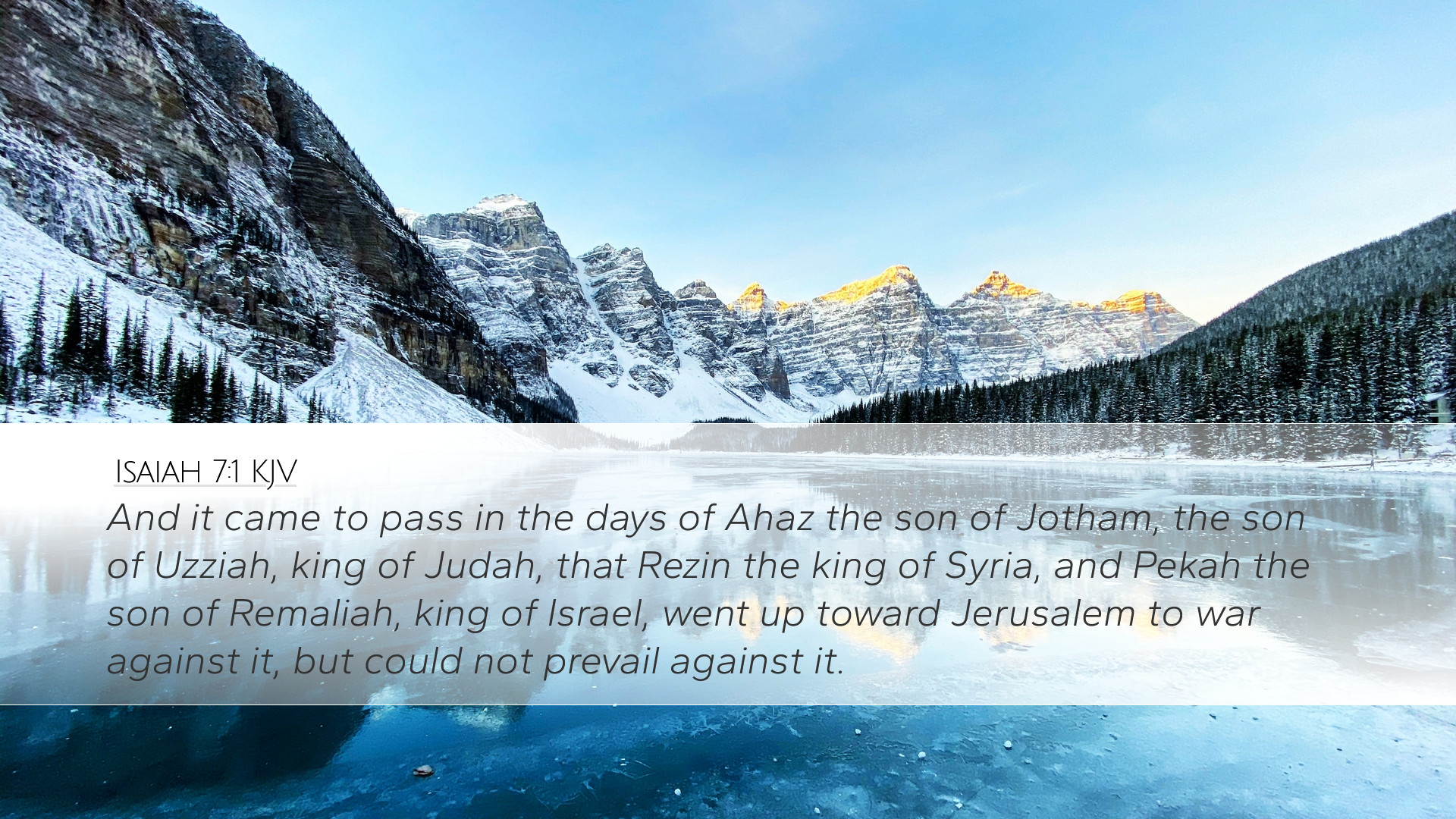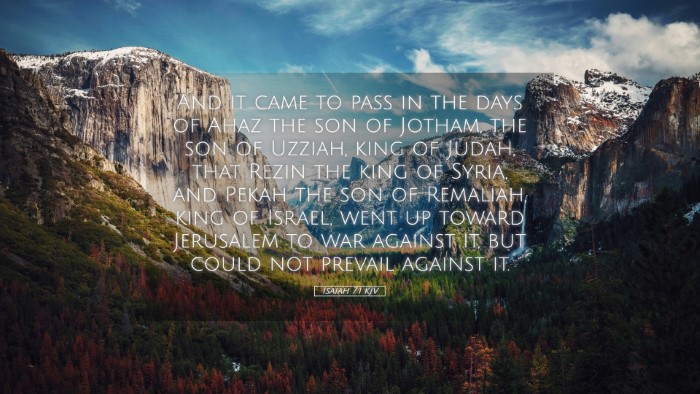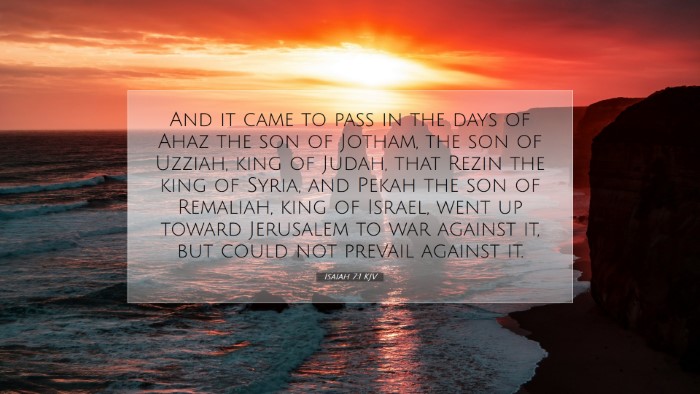Commentary on Isaiah 7:1
Isaiah 7:1 states: "And it came to pass in the days of Ahaz the son of Jotham, the son of Uzziah, king of Judah, that Rezin the king of Syria, and Pekah the son of Remaliah, king of Israel, went up toward Jerusalem to war against it, but could not prevail against it."
Historical Context
The historical backdrop of Isaiah 7:1 is essential to understanding the text. During this period, King Ahaz ruled over Judah amid growing threats from neighboring nations, particularly Syria and Israel, which was now under the leadership of Pekah. This geopolitical tension is critical, as it illustrates the broader conflicts affecting Judah and sets the stage for Isaiah's prophetic ministry.
Insights from Commentaries
Matthew Henry's Perspective
Matthew Henry highlights the significance of Ahaz’s reign and the impending dangers posed by Rezin and Pekah. He emphasizes the providential circumstances that lead to divine communication through Isaiah. Henry notes that despite the intimidating context, God remains sovereign and promises guidance and deliverance. He reflects on the idea that Ahaz's faith or lack thereof is pivotal in how God's promises will unfold.
Albert Barnes' Observations
Albert Barnes provides a careful analysis of the political alliances and conflicts during this era. He points out that the coalition between Syria and Israel represents a significant threat to Judah's stability. Barnes comments on the strategic error of Ahaz leaning on foreign powers for assistance rather than relying on God. He underscores the importance of recognizing God’s presence and intervention in times of distress.
Adam Clarke's Commentary
Adam Clarke's insightful commentary emphasizes the despair and fear that characterize Ahaz’s reign. Clarke elaborates on the nature of the threats posed by Rezin and Pekah, indicating that their intentions were not merely military but also aimed at undermining the faith of Judah. He discusses how God's message through Isaiah serves to bolster the faith of the people and reassure them in the face of fearsome adversaries.
Theological Implications
The theological implications of Isaiah 7:1 extend beyond historical events. This verse underscores the importance of recognizing God’s sovereignty amidst human strife. For theologians and pastors, the need for faith in God’s promises becomes a central theme. God’s initiative in sending Isaiah serves as a reminder that even in tumultuous times, God's guidance is ever-present.
Application for Today
-
God's Sovereign Control: This passage reassures believers that God is in control irrespective of the political situations surrounding them.
-
Faith Over Fear: The call for faith during crisis is a recurring theme; trusting in God rather than yielding to fear is vital.
-
Divine Communication: Like Isaiah, believers are encouraged to be attentive to divine messages and guidance, especially during challenging seasons.
-
Navigating Conflict: When facing adversaries, believers are called to seek God's wisdom rather than resorting to worldly alliances that may lead them astray.
Conclusion
Isaiah 7:1 serves not only as a historical recounting but also as a profound theological lesson. The insights from Matthew Henry, Albert Barnes, and Adam Clarke provide a valuable synthesis of understanding the text's implications for faith during times of crisis. For pastors, theologians, and students, this verse serves as both a warning and a reassurance of God’s ultimate sovereignty, urging the faithful to maintain their trust in Him amidst adversity.


